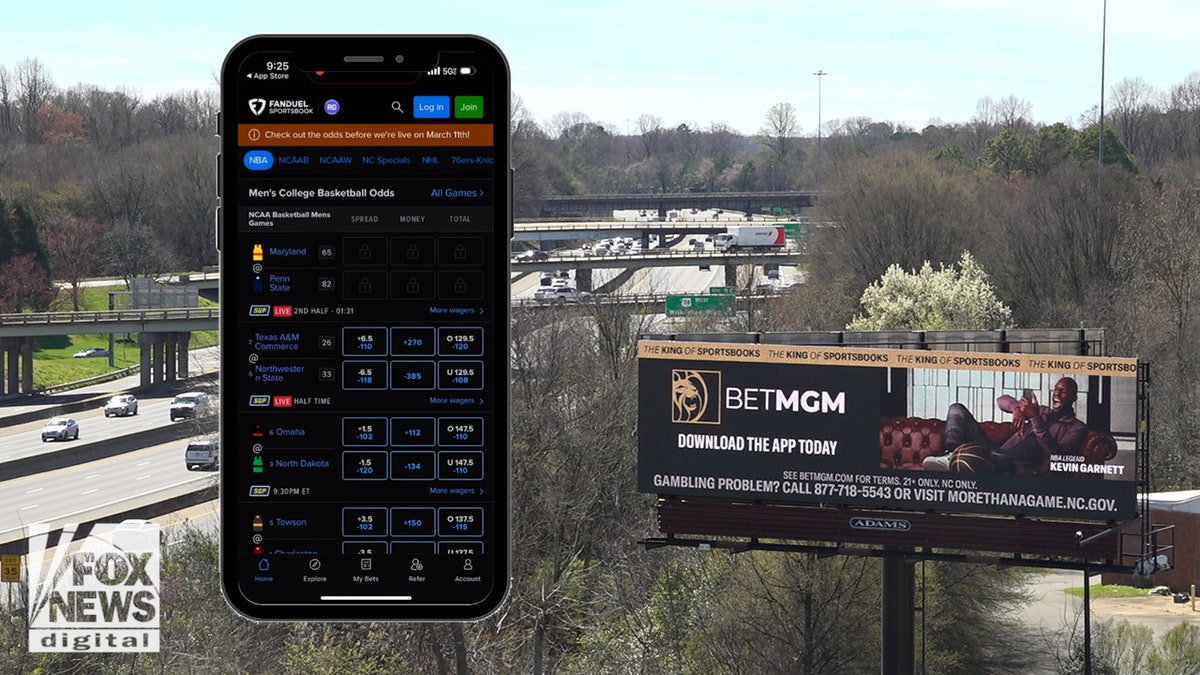This week, North Carolina was the next in line to legalizing mobile sports betting. Since 2018, when the Supreme Court struck down the ban on states authorizing sports betting, nearly 30 states have joined the movement.
Several states have generated millions of dollars in tax revenue from the legalization of the industry.
Since Arizona legalized sports betting, the state has generated more than $65 million in tax revenue. The U.S. Census Bureau said in the second quarter of 2023, the state of New York brought in $188.53 million from sports betting alone.
The Census Bureaus said tax revenue from the growing business of sports betting is used for roads, public education, and in North Carolina’s case, youth sports programs and gambling addiction programs.
LEGAL BATTLE UNDERWAY IN FLORIDA OVER SPORTS BETTING
Legalization of mobile sports betting kicked off in North Carolina on Monday, March 11. (Fox News)
One local bettor said he was excited to finally wager on some games.
“I had a countdown since the first of March…10 more days,” said David Scalzi with a laugh. He’s typically used DraftKings fantasy to bet on games.
“If I try to sign up for DraftKings, say in Virginia, they would not allow me to place a bet online because my phone registers as a location in North Carolina.”
Scalzi said he had been waiting for this moment for a long time. He said it’s a good money-maker for the state, as long as the state is honest about how it is using the tax revenue.
FORMER ALABAMA BASEBALL COACH SLAPPED WITH 15-YEAR BAN AFTER SPORTS BETTING SCANDAL
The American Gaming Association said since 2024 is an election year, there could be more states following suit.

Sports betting became legal in North Carolina on Monday, March 11. (Fox News)
“Many of the remaining states have active sports betting legalization bills,” said Chris Cylke with the American Gaming Association. “Again it’s not because people don’t want it, I think it’s more questions, who’s gonna control it, what’s the market place gonna look like?”
Cylke said many states have pushed the decision to voters.
CLICK HERE TO GET THE FOX NEWS APP
After years of failed attempts, the state of Georgia pushed legislation for legalization of mobile sports betting through the Senate. It must clear the state’s House and voters will have a final say in November.



